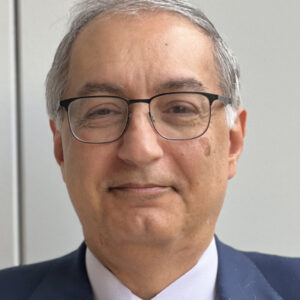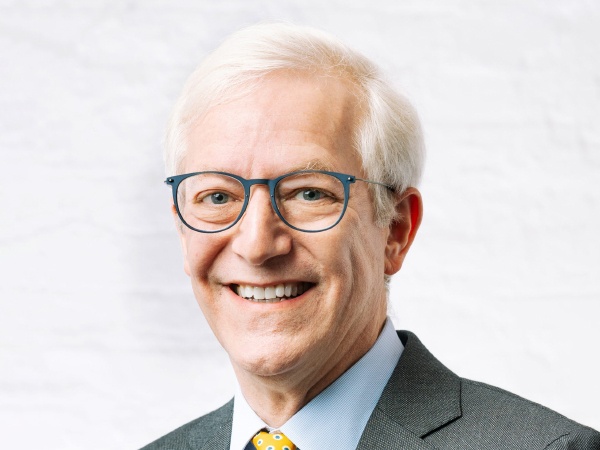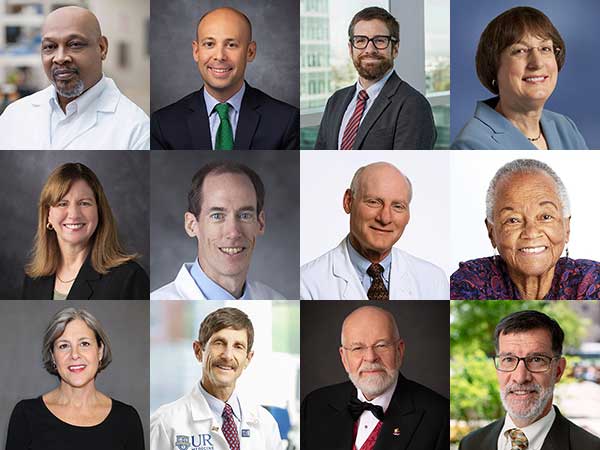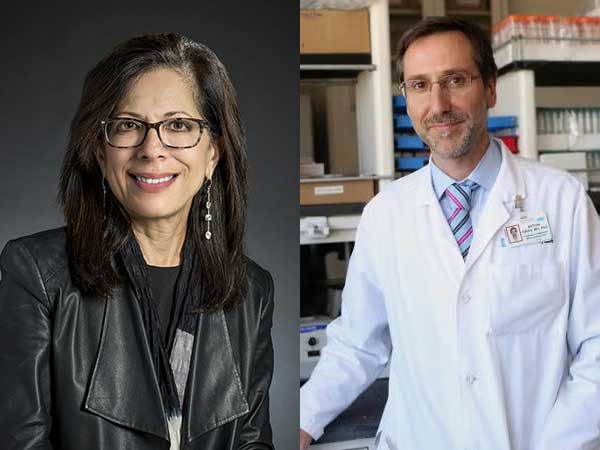I have no doubt that our professional associations in cancer research and oncology and our NCI in the U.S. care about the plight of cancer scientists and oncologists who have been displaced due to war or violence in their home countries.
Unfortunately, we do not have effective or rapid ways of helping sustain or support their efforts as would be needed after a few months or a year in the U.S. What is in place is simply not enough and can’t sustain efforts to achieve much beyond short-term brief experiences.
Violence is a normal state of affairs in Iran, and we have been witnessing a horrifying war in Ukraine, with thousands of war crimes committed.
In January 2022, we brought two talented Iranian physicians to conduct cancer research at Brown University’s Legorreta Cancer Center. Both Vida Tajiknia, MD, and Maryam Ghandali, MD, had reached out in 2021 looking for research opportunities. Both have been learning and had opportunity to attend AACR meetings in 2022 and 2023.
They initially came by expending their own resources and within a few short months we were able to offer them stipends so they could continue their research. Dr. Tajiknia attended the Joint AACR-JCA meeting in 2022, presented novel findings with a KRAS G12D drug that appeared to have activity against additional non-KRAS G12D KRAS mutations. By 2023, Dr. Tajiknia and Dr. Ghandali each had two posters that they presented at the Orlando AACR meeting1-4 and were contributing in many ways to the diverse collegial and collaborative research environment.
When the Ukraine war started in February 2022, many in the cancer community—myself included—felt that we had the moral obligation to help our colleagues in Ukraine (The Cancer Letter, March 4, 2022). I thought it would be good to update on subsequent efforts and where we are as we approach the July 4 holiday.
In January and March 2023, we welcomed two Ukrainian medical oncologists who are physician-scientists Dinara Ryspayeva, MD, PhD, and Nataliia Verovkina, MD, PhD, to Brown as visiting assistant professors in pathology and laboratory medicine and as Legorreta Cancer Center Scholars. We were introduced to them by Dr. Nataliya Kovalchuk, of Stanford, through her efforts to help various Ukrainian subspecialists.


Dr. Verovkina brought her 13-year old son Roman with her and they have been acclimating to the new environment. She has written about her experiences in Ukraine in The Cancer Letter in March, 2022 (The Cancer Letter, March 4, March 18, 2022).
I was very pleased that Brown University was supportive and partnered with our cancer center to provide opportunities for them through Brown’s Displaced Scientist Program. Our visiting physician-scientist scholars have been involved in intensive research activities and are getting some longitudinal clinical experiences by attending with me clinics, tumor boards, grand rounds, cancer center research program meetings, translational research disease group meetings, research lab meetings, journal clubs, invited seminars and cancer center program retreats.
Drs. Ryspayeva and Verovkina attended the 2023 AACR and ASCO meetings. During the 2023 AACR meeting, the delegation from Ukraine came to our Legorreta Cancer Center reception in Orlando and we had an opportunity to warmly welcome Dr. Olena Yefimenko, the director of the NCI in Kyiv, Ukraine, Dr. Stepan Krulko from the Tomo clinic in Kropyvnytskyi, Ukraine, Dr. Sergii Kozhukhov from the National Scientific Center, Strazhesko Institute of Card in Ukraine, and Dr. Liudmyla Ostrovska from Audubon Bioscience in Kyiv.
By the time of the 2023 ASCO meeting, Dr. Ryspayeva had already joined the team working on a unique investigator-initiated clinical trial that was presented as a trial-in-progress.5


Dr. Verovkina has become interested in tackling the limiting immune toxicity of immunotherapy in breast cancer and has joined the team working on this project.6
As months go by and these amazing physician-scientists—Drs. Verovkina, Ryspayeva, Tajiknia, and Ghandali—who are committed to making a difference through innovative discoveries with translational potential to impact on patients, we begin to look towards the future to support and sustain their research. After all, the circumstances that led them to come to the U.S. have not changed, and of course meaningful research advances take time to mature and to translate.
What has become clear is that there are no real opportunities available to sustain efforts or support visiting physician-scientists during extraordinary times. Several societies have been working to coordinate short-term opportunities in the U.S., but more organized planning and budgeting is needed to sustain initiated efforts.
There are great opportunities to discuss collaboration with the NCI of Ukraine and to come up with initiatives that matter to the people of Ukraine and their burden of cancer. There are training opportunities similar to what Drs. Verovkina and Ryspayeva have been undertaking in translational cancer therapeutics research with continuing clinical presence and learning. These experiences will become more specialized based on their interests as they gain a firm footing and direction in the laboratory. They can also help other oncologists in Ukraine understand and benefit from their own experiences in the U.S., at a major academic cancer center.
During these unusual times when efficiency and timeliness are important, certain eligibility rules should be relaxed or amended during a crisis such as a war. And, certainly, I know that when people work together, they can be flexible and supportive.
To support the continued career development of these scientists while they are in the U.S., our societies, foundations, and government entities need to organize national programs where these researchers would be specifically eligible to apply for funding.
These are not handouts or money that taxpayers are throwing away. These individuals have had extensive training and are part of diverse teams that are working hard to make life better for patients with cancer everywhere.
They are proving that they are worth investing in and that they can make meaningful contributions as they advance their own careers.
References
- V. Tajiknia, W. El-Deiry, M. P. Schwermann, L. Zhou, K. Huntington, Abstract 1072: Combination of 5-Fluorouracil or ONC212 plus KRAS G12D inhibitor MRTX1133 against colorectal and pancreatic cancer cells results in immune-stimulatory cytokine patterns and unexpected synergies independent of G12D mutation. Cancer Research 83, 1072-1072 (2023).
- V. Tajiknia, W. E. Deiry, L. Zhou, Abstract 2831: Enhanced efficacy of HDAC inhibitor panobinostat and ONC206 combined with radiation therapy against human glioblastoma cell lines without H3K27M mutation. Cancer Research 83, 2831-2831 (2023).
- M. Ghandali et al., Abstract 5512: TIC10/ONC201 in combination with ceralasertib exhibits potent synergy in high grade serous ovarian cancer cells. Cancer Research 83, 5512-5512 (2023).
- M. Ghandali et al., Abstract 1066: PARP inhibitor rucaparib in combination with imipridones ONC201 or ONC212 demonstrates preclinical synergy against BRCA1/2-deficient breast, ovarian, and prostate cancer cells. Cancer Research 83, 1066-1066 (2023).
- S. L. Graff et al., BrUOG 387: Phase Ib investigator-initiated trial of a heat shock protein 90 inhibitor (HSP90i) combined with a CDK4/6i in advanced breast cancer progressing on CDK4/6i and in solid tumors with retinoblastoma (Rb)-deficiency (IND163592). Journal of Clinical Oncology 41, TPS3167-TPS3167 (2023).
- S. Jillian et al., TRAIL agonists rescue mice from radiation-induced lung injury. bioRxiv, 2023.2006.2012.544681 (2023).










